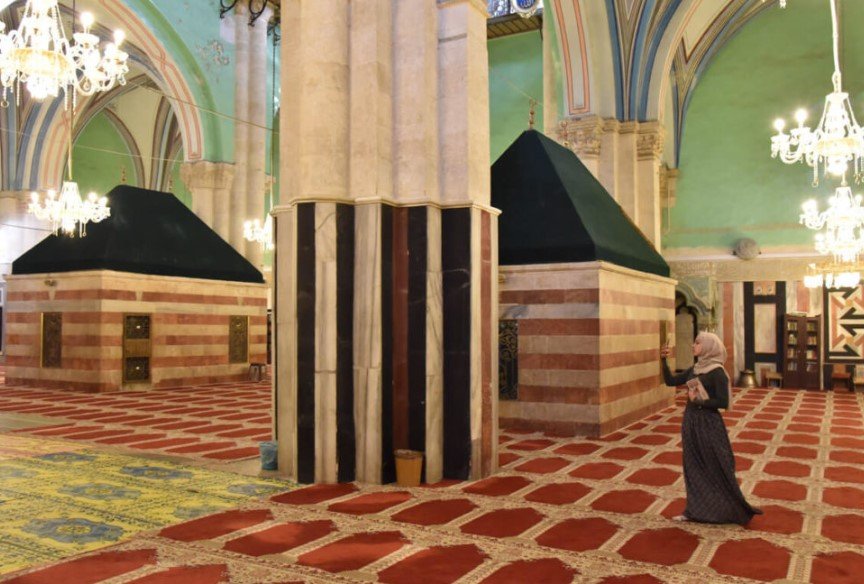Civil Administration says move is temporary for construction; Palestinian authorities reject claims as “land grab in disguise”
In a development that risks reigniting religious and geopolitical tensions in the West Bank, Israeli authorities have taken administrative control of the Tomb of the Patriarchs in Hebron, citing the need to carry out construction work at the sacred site. The Civil Administration—a division of Israel’s Ministry of Defense responsible for civilian affairs in the occupied territories—insists the move is “temporary” and will enable the building of a shaded canopy for worshipers.
But critics, including Palestinian officials and Muslim religious leaders, say the takeover undermines fragile power-sharing arrangements around one of the world’s most contested religious sites.
A Shrine with Two Histories
The Tomb of the Patriarchs, also known to Muslims as the Ibrahimi Mosque, is revered by both Jews and Muslims as the burial place of the patriarchs Abraham, Isaac, and Jacob, and matriarchs Sarah, Rebecca, and Leah. The compound is one of the oldest continuously used prayer sites in the world—and also one of its most heavily fortified.
Split physically and administratively between Muslim and Jewish worshippers, the site has been under a delicate joint arrangement since the 1997 Hebron Agreement, which divided the city into Israeli- and Palestinian-administered zones. That balance, however, has been repeatedly strained by cycles of violence, political intervention, and rising settler presence.
The latest development—Israeli authorities assuming direct control to conduct “maintenance”—has set off alarm bells in both Hebron and Ramallah.

Civil Administration Says Move Is Logistical
A spokesperson for the Civil Administration told Hebrew media on Sunday that the decision to seize control of the site’s administrative responsibilities was “bureaucratic” and meant to “facilitate the erection of a canopy in the southern courtyard to provide shelter for worshipers during the summer months.”
“The canopy is for the benefit of all worshipers—Jews, Muslims, and tourists alike,” the official said. “Once construction is complete, administrative oversight will revert to the Hebron Municipality.”
According to internal documents reviewed by local press, the process for issuing permits and transferring work authorizations is in “advanced stages” and involves a consortium of contractors already operating under COGAT’s West Bank development budget.
Palestinian Leaders Cry Foul
Palestinian officials were quick to reject the official justification. The Hebron Municipality issued a statement late Sunday condemning the Israeli move as “an unprecedented violation of international agreements and the religious integrity of Hebron.”
“This is not a canopy. It is a wedge,” said Hebron mayor Tayseer Abu Sneineh. “The Tomb of the Patriarchs is under joint management, and any unilateral construction is a violation of the Status Quo.”
The Palestinian Ministry of Religious Affairs went further, accusing Israel of using infrastructure work as a pretext to increase settler influence in Hebron’s Old City. “This is administrative annexation dressed up as maintenance,” said the ministry in a statement circulated to foreign consulates in Jerusalem.
Settler Council: “We’re in Charge Now”
Fueling tensions further, the Jewish settler council in Hebron issued its own statement Sunday night claiming the site was now “under full Israeli management.”
“We have waited for this moment for years,” said Rabbi Hillel Cohen, a senior figure in the Hebron settlers’ movement. “The Tomb of the Patriarchs is a Jewish heritage site and should be under Jewish administration. We thank the Israeli government for finally acting.”
While the Civil Administration has denied any permanent administrative shift, settler leaders have already begun lobbying for further renovations, including accessibility upgrades and the installation of an additional security checkpoint near the Muslim entrance.
Waqf Trust and Muslim Worship Access at Risk
Muslim religious authorities managing the Ibrahimi Mosque section of the site have warned that even small construction changes can drastically impact prayer access, especially during peak hours and religious holidays.
The Islamic Waqf, the Jordanian-backed religious trust that administers Muslim holy sites in Jerusalem and Hebron, said it had not been consulted prior to the announcement. “This is a breach of both protocol and trust,” said Sheikh Azzam al-Khatib, director general of the Waqf. “These ‘temporary’ moves always become permanent.”
Last year, a similar plan by the Israeli government to build an elevator shaft at the site to enhance disabled access led to protests and international diplomatic pressure. That plan was shelved—temporarily.
Fragile Status Quo Faces Renewed Strain
| Stakeholder | Role in Site Administration | Reaction to Israeli Move |
|---|---|---|
| Civil Administration | Temporary oversight for construction | Says move is logistical and time-bound |
| Hebron Municipality | Co-manager with Waqf | Condemns move as illegal and provocative |
| Settler Council | Advocates Jewish control | Celebrates the takeover as long overdue |
| Islamic Waqf | Muslim religious custodian | Warns of dangerous precedent, refuses cooperation |
The Tomb of the Patriarchs is governed by a highly sensitive Status Quo arrangement, akin to that of the Al-Aqsa Mosque in Jerusalem. Even the most minor administrative shifts at such sites tend to ripple far beyond their walls.
“Hebron is always five minutes away from exploding,” said Sami al-Qawasmeh, a political analyst based in Bethlehem. “A scaffolding pole here becomes a power grab there.”
International Response Yet to Materialize
So far, there has been little public reaction from international actors. But observers expect strong statements from Jordan, the custodian of Islamic sites in the West Bank, as well as from the European Union, which has historically funded restoration efforts in Hebron.
The U.S. State Department has yet to comment, but analysts say Washington may be reluctant to weigh in amid its current push to stabilize Gaza ceasefire negotiations and normalize Israeli-Saudi ties.
